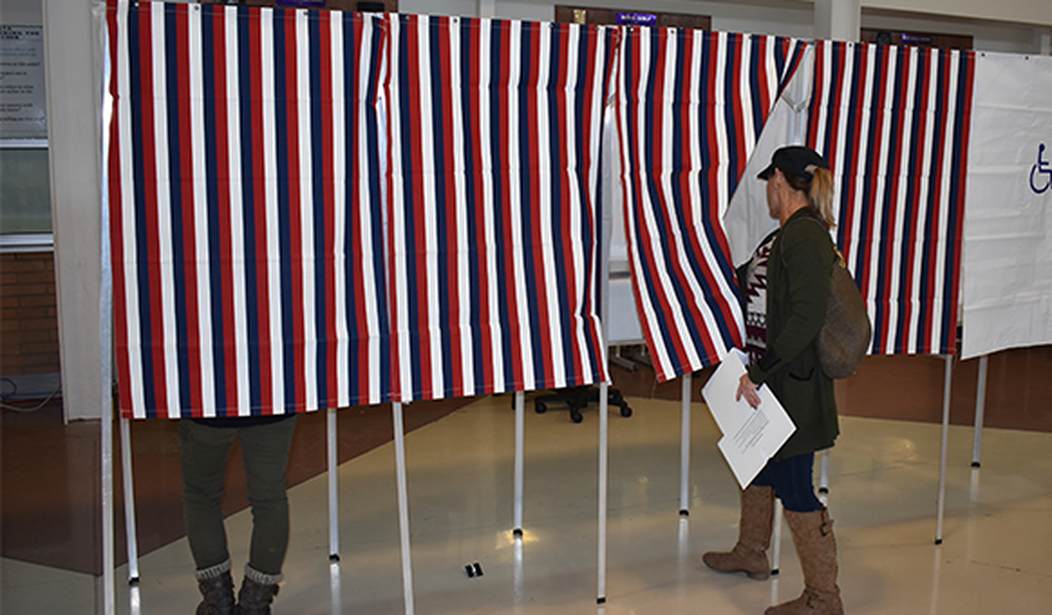The short answer is: The Republicans won this battleground seat in southern Minnesota, which was a hold for the party. The point of elections is to win, and the GOP did. But was it an under-performance, pointing to Democratic momentum in the battle to control the House? Depending on what baseline you use, a case can be made in either direction (with the key caveat in place that special elections are often weird and unrepresentative). Democrats and liberal elections analysts are comparing the GOP margin last night to Trump's margin in the district. When that's the framing, it certainly looks underwhelming for Republicans. Here's the negative spin (with Finstad winning by just over four points):
My best guess: Brad Finstad (R) ends up winning #MN01 (Trump +10) by just 51%-47% or so when the final four counties finish reporting.
— Dave Wasserman (@Redistrict) August 10, 2022
That would be remarkably consistent with the June 28 #NE01 special, when Mike Flood (R) won a Trump +11 seat by just 53%-47%.
Wasserman positions this as a significant Democratic over-performance, similar to another recent Congressional special election in which the GOP held a seat, but by a substantially smaller margin than when Trump carried the district in 2020. There might be something to that. Finstad blew it out in rural areas last night, hitting historic margins as a Republican, but the more suburban areas really boosted Jeff Ettinger, the Democrat. Other signals were more mixed. The Democrat carried five of the top six most populous counties in the district. The Republican won all the others, often by lopsided margins. Looking at these basis points, Democrats may be understandably excited about their improving prospects. But then there's this:
GOP candidate percentage of the vote in #MN01 Congressional election since 2012:
— RRH Elections (@RRHElections) August 10, 2022
2012: 42.3%
2014: 45.7%
2016: 49.6%
2018: 50.1%
2020: 48.6%
Last night: 51.1%
This election was to replace Republican Rep. Jim Hagedorn, who passed away in February. Look at the district's recent history. In 2020, Hagedorn, as the incumbent – and with Trump on the ballot, winning the district by double digits – posted just a three-point win. In the 2018 blue wave year, Hagedorn squeaked through by the skin of his teeth, winning by less than half of one percentage point. Before that, the seat was in Democratic hands (sometimes quite narrowly) since the 2006 cycle. This is a swingy, competitive district. And despite lacking the incumbency advantage, and Democrats nominating a strong candidate, the Republican candidate achieved the highest percentage (R) of the district vote since 2004. In other words, Finstad over-performed versus House GOP candidates in the district but underperformed versus Trump's margin there. One factor that could cut either way is that Republican turnout in MN-01 was not terribly impressive overall. They won, but with only a fraction of the voters who gave Trump a big cushion two years ago (it's also highly relevant that Congressional Republican candidates have run substantially behind Trump's appeal in this district for many years):
Recommended
If you want to simply discuss how differential turnout can generate weird results, Scott Walker got 1.3M votes in 2018, while a staggering 700K Wisconsin Rs voted last night.
— Douglas Lukasik (@DouglasLukasik) August 10, 2022
In MN-1, Trump received roughly (ballpark) 205K in 2020, last night the GOP candidate nabbed only 60K.
If GOP turnout is mediocre in November – or if it's good but roughly matched by Democrats – the red wave people have been predicting for months may look more like a ripple, if that. For what it's worth, RealClearPolitics elections analyst Sean Trende thinks Democrats' crowing based on last night's results is overblown:
Even then, redistricting probably gets Republicans like 5 seats just for showing up.
— Sean T at RCP (@SeanTrende) August 10, 2022
He's responding to chatter than Democrats might actually have a somewhat distant but real chance of holding the House. That remains very unlikely in my book, but if Republicans take things for granted, November could be a big letdown. But in a number of places that voted yesterday, especially Wisconsin, there wasn't a lot of complacency detected on the GOP side:
From the @WinWithJMC files. Last night's primary share relative to 2018
— Douglas Lukasik (@DouglasLukasik) August 10, 2022
VT: Massive 20% Dem overperformance
CT: Solid GOP 8% increase
MN: Impressive 15% R overperformance
WI: Stunning 22% GOP gain.
(His data on WI is estimated, and Dem share was lower than expected.) https://t.co/ZRrslRD2ci
These points might help explain why MN-01 wasn't better than it was. I'll leave you with a note on the national environment. Democrats have effectively tied Republicans on the generic ballot averages, overall. But a tie would still mean a fairly bad night for them, and there are compelling reasons to believe late-deciders will tend to break red:
Decent news for Dems is that despite this, the generic 2022 ballot is tied (44/43) in this poll. The worse news for them is that of the undecideds (13%), there are ~2x as many with an unfavorable view of Biden vs favorable. https://t.co/nB3OsImULe
— Guy Benson (@guypbenson) August 10, 2022
Click through to read why there are some red-wavy signs floating around on House races. The Senate? Looking more challenging for Republicans at the moment, based on the cycle map, candidate quality, and fundraising struggles.

























Join the conversation as a VIP Member